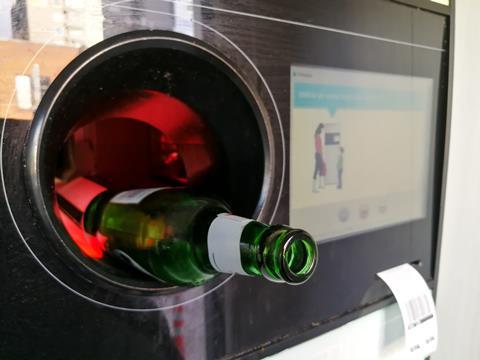
Research conducted by Every Can Counts suggests that nearly a third (29%) of consumers in the Republic of Ireland are unsure how to use its new deposit return scheme – yet nearly seven in ten (69%) believe it will encourage them to recycle more.
Other potential deterrents to participating in the scheme include 36% of respondents expressing their concern about not having enough space to store uncrushed drink containers; 22% indicating that the refundable deposit is not high enough; and 17% believing that there are too many steps to follow.
Another 17% reported that they do not have enough time to return their cans and plastic bottles.
On the other hand, of the 69% of respondents encouraged to recycle by the new deposit return scheme, concern for the environment prevailed as the main motivating factor. At 78%, over three-quarters claim they are more likely to buy a drink container they believe to be recyclable, including aluminium cans and plastic and glass bottles.
Additionally, 75% agreed that they would be more likely to use the deposit return scheme if they understood the environmental benefits of recycling.
As such, Every Can Counts explains that any drink container bearing the Re-turn logo requires consumers to pay a refundable deposit; this costs 15 cents for containers from 150ml to 500ml in size, and 25 cents for those between 500ml and 3 litres. Containers that do not feature the logo are not eligible for a refund.
Consumers are encouraged to take their empty, undamaged containers to a reverse vending machine, which will display instructions walking consumers through the return process. Once a drink container has been inserted, the machine will provide a voucher for the refundable deposit – this can then be taken to a till at participating stores to receive a full refund or serve as credit towards a consumer’s next purchase.
Alternatively, empty containers can be returned directly over the counter at participating stores.
Re-turn offers a map on its website to help consumers find their nearest drop-off point.
Chris Latham-Warde, programme manager at Every Can Counts, commented: “With the new Deposit Return Scheme having only just launched in the Republic of Ireland, it’s not surprising to see people harbouring some uncertainty towards the details of the scheme and how they can get their refundable deposit back.
“While their worries are completely valid, we hope that as they become more familiar with the scheme and its steps, we’ll see more and more people participating in it and recycling their used drink containers through Re-turn.
“Our findings highlight the important role environmental awareness and understanding will play in encouraging people to participate in the Deposit Return Scheme.
“Aluminium can be recycled time and time again, and making cans from recycled metal uses 95% less energy than making them from raw materials. At Every Can Counts our focus is on raising awareness of these environmental benefits and delivering communications that inspire people to do the right thing with their empty cans.
“We hope our tips will help to make the process clearer and encourage more people to take part in the Deposit Return Scheme, as ultimately this will have a lasting positive impact on the environment.”
The development comes after Reconomy cautioned businesses to prepare for the implementation of Ireland’s deposit return scheme as the country pursues its targets to separate and collect 77% of plastic beverage bottles by 2025 and 90% in 2029.
In other news, TOMRA and MOHU have launched a deposit return scheme for single-use drink containers in Hungary. This is intended to help optimize the process of returning used packaging for new recyclers.
Sensoneo is also set to power a deposit return system for single-use beverage containers in Austria from January 2025.
If you liked this article, you might also enjoy:
The Lidl approach to packaging sustainability
How did Brazil achieve its 100% aluminium can recycling rate – and can it be replicated in the EU?
Experts have their say on the EU’s Packaging and Packaging Waste Directive revisions
A deep dive into the most important packaging sustainability trends and solutions


















No comments yet